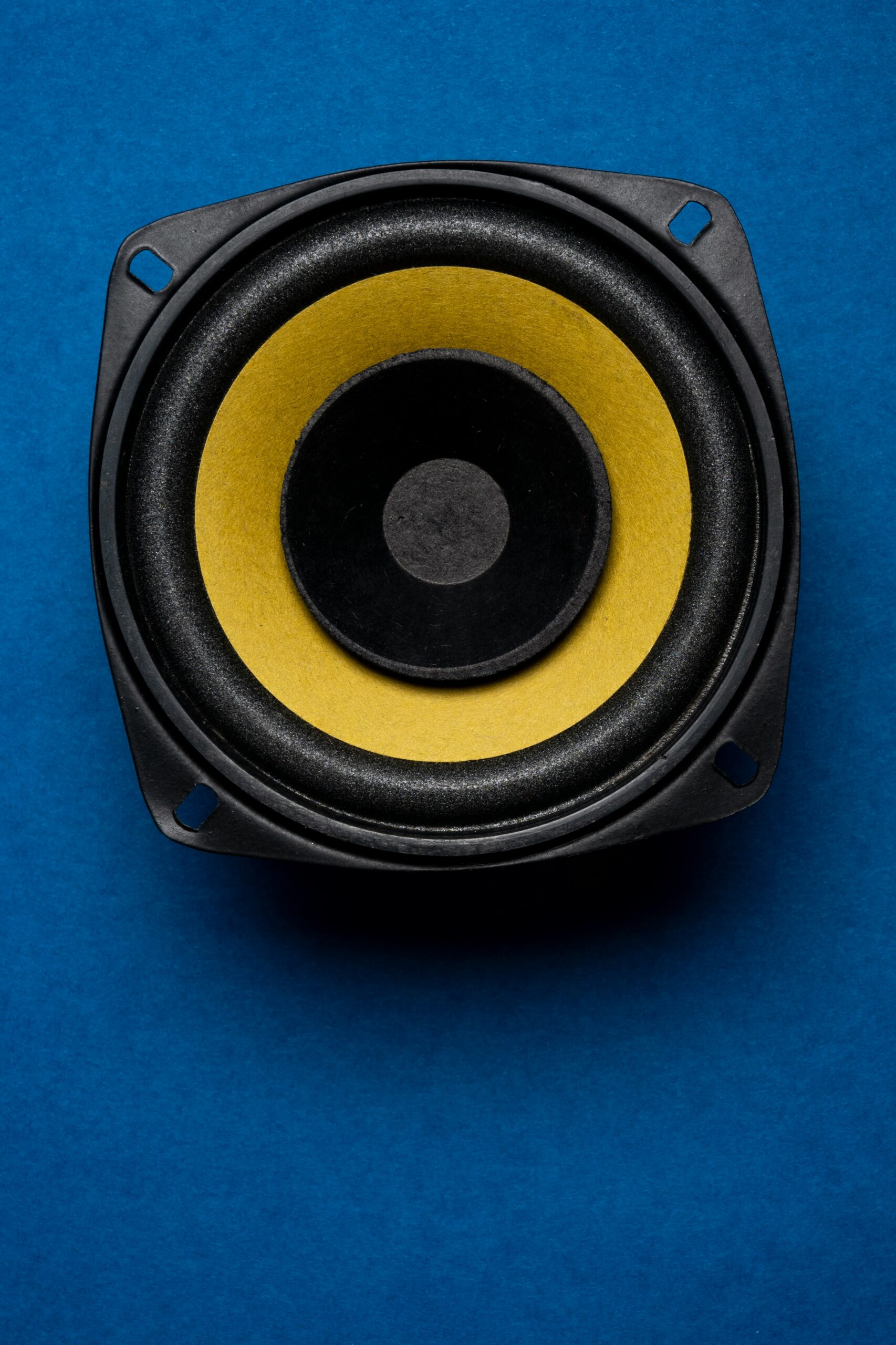Early Life and Family Background
Julian Marley, born on June 4, 1975, in London, England, is the son of the legendary reggae artist Bob Marley and Lucy Pounder. Growing up in a musically rich environment, Julian was deeply influenced by his father’s profound legacy and the vibrant reggae culture that permeated his upbringing. From a young age, he was immersed in the rhythms and melodies that defined the genre, fostering a deep appreciation and understanding of reggae music.
Julian’s family background is steeped in musical tradition. His father, Bob Marley, is a seminal figure in reggae music, renowned for his contributions to the genre and his messages of peace, love, and social justice. This legacy was a significant influence on Julian, shaping his musical journey and guiding his artistic vision. Additionally, his mother, Lucy Pounder, provided a nurturing environment that supported his creative aspirations.
Julian’s multicultural upbringing between England and Jamaica played a pivotal role in shaping his identity and music. This duality allowed him to absorb diverse cultural influences, enriching his musical palette and broadening his artistic horizons. In England, Julian was exposed to a variety of musical styles and genres, which complemented the rich reggae heritage he inherited from his Jamaican roots. This unique blend of experiences is reflected in his music, which seamlessly integrates traditional reggae elements with contemporary sounds.
Growing up, Julian was surrounded by his siblings, many of whom also pursued careers in music. This familial bond and shared passion for reggae further reinforced his dedication to the craft. The Marley family legacy, coupled with his diverse cultural experiences, provided Julian with a solid foundation upon which to build his own musical career. Through his work, Julian continues to honor his father’s legacy while forging his own path in the ever-evolving landscape of reggae music.
Musical Beginnings and Influences
Julian Marley, born into the legendary Marley family, was surrounded by music from an early age. His journey into the world of music began with his exposure to his father Bob Marley’s profound legacy. From a young age, Julian was immersed in the rich sounds of reggae, absorbing the rhythms and messages that defined the genre. His first forays into music saw him experimenting with various instruments, showcasing a natural aptitude and passion that echoed his father’s influence.
Julian’s initial instrument of choice was the guitar, a staple in reggae music, which he began playing as a child. This early start allowed him to develop a strong foundation in musical skills, further fueled by the vibrant atmosphere of his home. Surrounded by the music and spirit of Bob Marley, Julian’s understanding of reggae’s roots deepened, shaping his musical style and approach. His early performances, often informal and within family circles, were the first steps in honing his craft and establishing his unique sound.
Beyond the immediate influence of his father, Julian was also inspired by other reggae legends such as Peter Tosh and Bunny Wailer. These artists, with their distinctive styles and contributions to reggae, broadened Julian’s musical perspective. Additionally, he drew inspiration from various genres outside of reggae, including jazz and blues, which enriched his musical palette and contributed to his versatility as an artist.
As Julian honed his skills, pivotal moments in his early career solidified his decision to pursue music professionally. His participation in family recording sessions and live performances provided invaluable experience and exposure. These opportunities not only refined his technical abilities but also reinforced his commitment to carrying forward the Marley legacy. Julian’s early musical journey, marked by diverse influences and dedicated practice, set the stage for his emergence as a prominent figure in the reggae world.
Formation of Ghetto Youths International
Julian Marley, alongside his brothers Stephen, Damian, and Ky-Mani Marley, co-founded Ghetto Youths International in the early 1990s. This record label was established with a clear mission: to provide a nurturing platform for young and aspiring artists within the reggae music genre. The Marleys, conscious of the challenges and barriers faced by emerging musicians, sought to create an environment where talent could be recognized and cultivated without the constraints typically encountered in the music industry.
Ghetto Youths International quickly became a beacon for reggae artists, embodying the Marley family’s commitment to social justice, cultural expression, and artistic freedom. The label’s influence on the reggae community is profound, as it has not only enabled the proliferation of new music but also preserved the essence of reggae’s roots and its message of unity and resistance. The label’s approach has always been holistic, emphasizing not just the commercial success of its artists but also their development as individuals and the impact of their music on society.
Over the years, Ghetto Youths International has been instrumental in launching the careers of several notable artists. Among the label’s distinguished releases are albums from Julian Marley himself, such as “Awake” and “As I Am,” both of which received critical acclaim and contributed to his reputation as a reggae icon. Additionally, the label has supported the careers of other prominent artists like Black-Am-I, Jo Mersa Marley, and Kabaka Pyramid, whose works have resonated with audiences worldwide.
The formation and growth of Ghetto Youths International underscore Julian Marley’s enduring legacy and his dedication to fostering the next generation of reggae talent. Through this label, the Marley brothers have ensured that reggae music continues to thrive, evolve, and inspire, staying true to its roots while embracing the future.
Discography and Key Albums
Julian Marley, a prominent figure in reggae music, has an impressive discography that showcases his profound contributions to the genre. His debut album, Lion in the Morning, released in 1996, marked the beginning of a promising career. The album blends traditional reggae rhythms with contemporary sounds, reflecting Julian’s unique style. Tracks like “Loving Clear” and “Babylon Cookie Jar” highlight his lyrical depth and commitment to social justice. The production, largely overseen by Julian himself, received praise for its authenticity and innovation.
In 2003, Julian released A Time & Place, an album that further cemented his place in the reggae world. This work was noted for its introspective themes and diverse musical influences, ranging from roots reggae to touches of jazz and blues. Standout tracks include “Systems” and “Couldn’t Be the Place,” which address political and personal struggles with a poignant narrative. The album was well-received by critics and fans alike, solidifying Julian’s reputation as a thoughtful and talented artist.
The 2009 album Awake is often considered one of Julian Marley’s most significant works. It earned a Grammy nomination for Best Reggae Album, a testament to its impact. Awake features powerful tracks such as “Boom Draw” and “On the Floor,” which showcase Julian’s ability to blend traditional reggae with modern elements. The album’s themes of enlightenment and consciousness resonate deeply, reflecting his growth as an artist and individual.
Julian’s latest album, As I Am, released in 2019, continues his legacy of producing meaningful and impactful music. This album delves into themes of identity and self-expression, with tracks like “Hey Jack” and “Magic of Love” standing out for their lyrical sophistication and melodic richness. As I Am was praised for its production quality and Julian’s vocal performance, further establishing him as a leading figure in contemporary reggae.
Overall, Julian Marley’s discography is a testament to his enduring influence and innovation in reggae music. Each album not only highlights his musical talents but also his dedication to conveying powerful messages through his art.
Musical Style and Lyrical Themes
Julian Marley, the son of the legendary Bob Marley, has carved out a distinctive niche in the reggae music landscape. His musical style is a seamless blend of traditional reggae rhythms with modern influences such as hip-hop, jazz, and blues. This fusion results in a rich auditory tapestry that honors his roots while appealing to contemporary audiences.
Julian’s reggae foundation is unmistakable, but his willingness to experiment with different genres sets him apart. For example, his song “Boom Draw” incorporates elements of hip-hop, featuring a strong beat and rhythmic vocal delivery. Conversely, tracks like “Harder Dayz” showcase his affinity for jazz and blues, with soulful melodies and intricate instrumental arrangements.
Beyond his innovative musical style, Julian Marley’s lyrics delve deeply into themes of spirituality, love, social justice, and Rastafarian beliefs. His song “Systems” is a poignant critique of societal inequalities, calling for justice and fairness. The track “Lemme Go” is a heartfelt exploration of personal freedom and spiritual awakening, reflecting Julian’s deep Rastafarian faith.
Love and unity are also central to Julian Marley’s lyrical themes. In “Stay With Me,” he sings passionately about romantic love, while “Things Ain’t Cool” addresses the broader need for global harmony and understanding. Through these varied thematic elements, Julian communicates messages of hope, resilience, and positive change.
Julian Marley’s artistry is a testament to his ability to blend musical genres and explore profound lyrical themes. His unique approach not only pays homage to his father’s legacy but also establishes him as a formidable force in his own right within the reggae genre. Through his music, Julian continues to inspire and uplift, keeping the spirit of reggae alive and relevant for new generations.
Collaborations and Notable Performances
Julian Marley, son of the legendary Bob Marley, has carved out his own niche in the music world through a series of high-profile collaborations that span various genres. These collaborations have not only broadened his musical horizons but have also established him as a versatile artist capable of crossing genre boundaries. One of his noteworthy collaborations is with the Grammy-winning reggae group, Morgan Heritage. Their joint effort on tracks like “Light It Up” showcases Julian’s ability to blend his distinct reggae sound with other artists, creating a fusion that resonates with a wide audience.
Another significant collaboration is with the American rapper, Nas, on the song “As We Enter,” which also features Damian Marley. This track highlights Julian’s adaptability and willingness to experiment with hip-hop elements while retaining the core essence of reggae. Moreover, Julian has teamed up with a myriad of artists from different musical backgrounds, including Lauryn Hill and Wyclef Jean, further cementing his status as a global musical influencer.
Julian Marley’s live performances are as impactful as his studio collaborations. His appearances at major festivals such as Reggae Sumfest in Jamaica and the California Roots Music and Arts Festival in the United States have been met with critical acclaim. These performances have not only showcased his musical prowess but have also solidified his reputation as a dynamic live performer. His tours often feature a mix of his solo work and collaborations, providing audiences with a rich, diverse musical experience.
One of the most memorable performances in Julian’s career was at the ‘One Love’ tribute concert, which honored the legacy of his father, Bob Marley. Sharing the stage with his siblings and other reggae legends, Julian delivered a powerful performance that paid homage to his roots while also highlighting his unique contributions to the genre. Such events have been instrumental in bolstering his reputation and extending his influence in the reggae community and beyond.
Philanthropy and Activism
Julian Marley, much like his legendary father Bob Marley, has transcended his musical career to become a beacon of philanthropy and activism. His dedication to humanitarian causes is evident across various sectors, most notably in education, healthcare, and social justice. A firm believer in empowering communities through knowledge, Julian has been actively involved in numerous educational initiatives. He supports programs that provide underprivileged children with access to quality education, helping to create opportunities for a brighter future.
Healthcare is another area where Julian Marley has made significant contributions. Understanding the critical importance of accessible medical care, he has championed several healthcare projects aimed at improving the well-being of disadvantaged communities. These initiatives range from funding medical facilities to organizing health awareness campaigns, ensuring that vital services reach those in need. His efforts have made a tangible difference, contributing to better health outcomes for many individuals.
Julian Marley’s commitment to social justice is deeply rooted in his Rastafarian beliefs, which emphasize equality and human rights. He has been a vocal advocate for the legalization of cannabis, highlighting its medicinal benefits and calling for an end to the criminalization of its use. Through various campaigns and public appearances, Julian has worked tirelessly to shift public perception and policy on cannabis, promoting a more informed and compassionate approach to its regulation.
In promoting Rastafarian values, Julian Marley has also supported numerous cultural and spiritual initiatives. These efforts aim to preserve and celebrate the rich heritage of Rastafarianism, fostering a sense of identity and community among its followers. By advocating for peace, love, and unity, Julian continues to inspire positive change and uplift those around him.
Julian Marley’s philanthropic and activist endeavors are a testament to his unwavering commitment to making the world a better place. Through his support of education, healthcare, social justice, and cultural preservation, he carries forward a legacy of compassion and activism that resonates far beyond the realm of music.
Legacy and Future Endeavors
Julian Marley, a name synonymous with reggae music, has meticulously upheld and expanded the legacy of his legendary father, Bob Marley. His contributions to the reggae genre go beyond mere replication of his father’s iconic sound; Julian has carved out his own unique space within the industry. His music, steeped in the rich tradition of reggae, has also embraced elements of contemporary influences, thereby appealing to a broader audience. This synthesis of old and new has cemented his status as a pivotal figure in modern reggae music.
Julian’s impact on contemporary music is profound. He has collaborated with numerous artists across various genres, extending the reach of reggae music and introducing it to new listeners globally. Albums like “As I Am” and “Awake” have not only garnered critical acclaim but have also resonated deeply with fans, further solidifying his role as an influential artist. His dedication to social issues, reminiscent of his father’s advocacy for peace and unity, continues to inspire and mobilize communities worldwide.
Looking ahead, Julian Marley shows no signs of slowing down. He remains deeply committed to his craft, continually seeking to innovate within the reggae genre. Fans can look forward to new projects that promise to blend his signature reggae roots with fresh, modern sounds. His future endeavors are anticipated to include more collaborations, live performances, and possibly new album releases that will continue to push the boundaries of reggae music.
Julian Marley’s journey is a testament to his unwavering dedication to music and to the values his father championed. As he continues to forge his own path, he not only honors his family’s legacy but also paves the way for future generations of reggae artists. The future indeed looks bright for Julian Marley and his ever-growing legacy within the reggae world.



